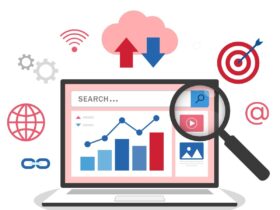Accounting is an essential part of any business, but especially for ecommerce businesses. Without good accounting practices, you can’t be sure that you are making a profit or what areas of your business are most successful.
Understanding the basics of accounting can help you to better manage your ecommerce business and make sure that it is running efficiently.
Here are seven must-know ecommerce accounting practices.
Know Your Finances
One of the most important things you need to do is understand your finances and where your money is coming from and going to. This means tracking all incoming payments, such as sales revenue, and outgoing payments, such as expenses related to running the business.
You should also track any taxes due and make sure they are paid on time.
Track Inventory Levels
If you sell goods online, then it’s important to keep track of how much inventory you have available at any given time. This allows you to manage how much stock you need to order when stock levels get low so that customers don’t have to wait too long for their orders.
It also helps you plan ahead in case there is a sudden increase in demand or a sale that requires more inventory than normal.
Calculate Profitability
Knowing whether or not your business is profitable is essential for making decisions about the future of your ecommerce business.
Calculating profitability involves subtracting all costs associated with running the business from the total income generated by sales over a certain period of time (usually a month). If the result is positive then your business is profitable; if not then it may be time to make some changes in order to turn things around.
Analyse Trends
Keeping track of trends in customer buying behavior can give you valuable insight into what products are selling well and which ones aren’t doing so hot.
This information can help inform which products should be featured prominently on your website or which ones should be discounted/promoted more heavily in order to boost sales numbers.
Set Up Accounting Software
Setting up ecommerce accounting software can save you time and energy when it comes to managing finances and tracking inventory levels each month.
Most software options offer features like invoicing, payroll management, budgeting tools, expense tracking, tax filing assistance, and more — all designed to save small businesses time and money while simplifying their daily operations processes as much as possible!
Hire an Accountant
If managing finances isn’t something that comes naturally or easily for you then it might be worth hiring an accountant who can take care of this aspect of running your ecommerce business for you so that you don’t have worry about it as much day-to-day and focus instead on other aspects like marketing/selling products or improving customer service experience etc.
Track Cash Flow
Tracking cash flow means keeping tabs on how money moves through your ecommerce business each month—from income (sales) coming in to expenses (such as rent) going out—so that you know exactly how much money is available at any given time and where it needs to go next in order for everything runs smoothly without any hiccups along the way!
Conclusion
Accounting can seem like a daunting task, but understanding some basic principles will help ensure success with an online store or marketplace site! Keep these seven must-know accounting practices in mind when managing finances for an ecommerce business — knowing where money comes from and goes out each month will help ensure that everything runs smoothly without any surprises down the road!
With proper accounting practices set up from the start, entrepreneurs can focus their energy on growing their businesses rather than worrying about financial details!












